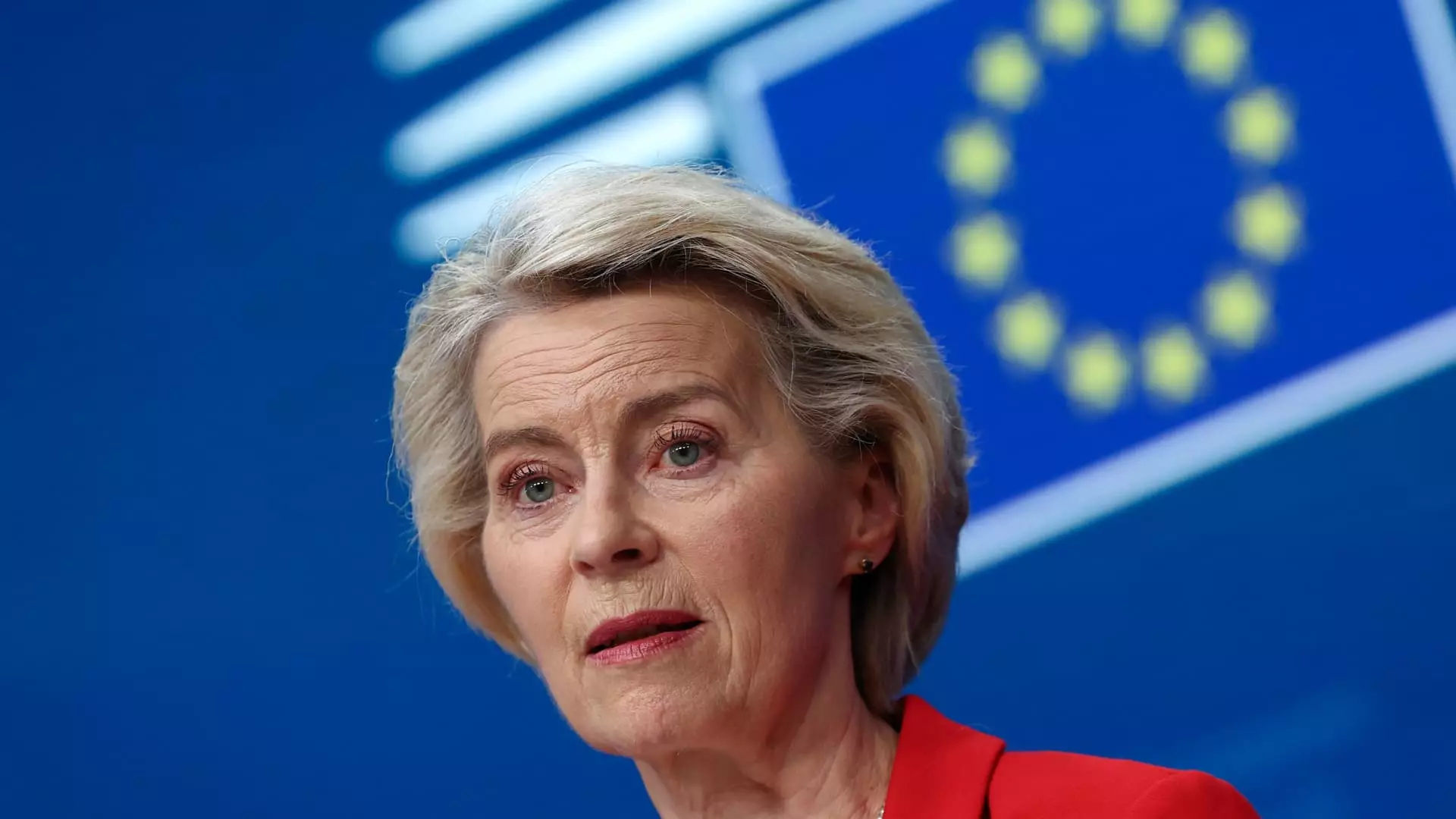In an era dominated by aggressive U.S. tariffs and the European Union’s strategic responses, the idea that negotiations can serve as a reliable pathway to stability is increasingly flawed. The recent decision by the EU to delay imposing retaliatory tariffs speaks more to a fragile hope than a firm commitment to dialogue. It reveals underlying insecurity about the practical impact of trade confrontations, yet it also hints at a lack of genuine leverage—Europe’s economic clout seems insufficient to challenge the U.S. at the negotiating table convincingly. The EU’s tactical decision to hold back tariffs while awaiting a “deal,” rather than standing firm, exposes an underlying hesitation—an acknowledgment that the global economy is perilously exposed to the whims of political brinkmanship rather than strategic diplomacy.
Moreover, the narrative that negotiations are “the preferred option” subtly masks a deeper reality: that these talks are often a facade for power play. While leaders like Ursula von der Leyen emphasize dialogue, the ongoing threats and unilateral tariff announcements suggest that dialogue is secondary to coercion in today’s trade politics. This duality underscores a perilous reliance on timed negotiations rather than genuine mutual compromise. Europe’s threat to counter with tariffs, still on the table, signals a recognition that confrontation could escalate quickly, yet it also reveals the European Union’s limited capacity to wield meaningful economic restraint against the U.S.’s formidable influence.
Economic Power: A Shift or a Show of Weakness?
The sheer scale of transatlantic trade—amounting to nearly two trillion euros annually—should give Europe leverage, but in practice, it often exposes the disparity of power. The EU’s biggest exports—ranging from pharmaceuticals to automobiles—are spectacles of global reliance. When the U.S. threatens to impose 30% tariffs, the immediate impact ripples beyond mere economic calculations, affecting millions of jobs and global supply chains. But these threats also highlight an uncomfortable truth: that economic power is increasingly asymmetrical. Despite the EU’s collective strength, it struggles to counteract the unilateral moves by a U.S. administration adamant about reshaping global trade to serve short-term political gains.
Furthermore, the U.S. framing its tariffs and trade demands as “security threats” manipulates patriotism and economic nationalism to justify aggressive measures. This rhetoric, although compelling for domestic audiences, undermines the possibility of fair, reciprocal negotiations. It is evident that the U.S. seeks to recalibrate trade relationships not through mutual benefit but through economic dominance. Europe’s cautious approach—sending diplomats like Italian Foreign Minister Antonio Tajani to Washington—looks more like a desperate plea for diplomacy than a strategic assertion of its global economic interests.
The Illusion of Power and the Cost of Subservience
Beneath the surface of political posturing lies a brutal truth: the global economy’s fragility depends on the actions of one dominant superpower. While EU leaders advocate for negotiation, their policy options are constrained by the reality that the U.S. can impose tariffs without regard for European economic well-being. The risk is not solely economic but geopolitical; Europe’s inability to push back effectively cedes influence and signals a dangerous shift toward U.S. economic unilateralism.
By conflating trade issues with national security, the Trump administration has ushered in a dangerous precedent—one where economic disputes are treated as existential threats. This perspective not only fuels global instability but also erodes the foundations of multilateral cooperation. The European Union’s attempts to navigate this landscape often feel like trying to tame a roaring beast with mere diplomatic gestures. Their precarious position underscores a troubling truth: that in today’s global arena, power politics overshadow genuine engagement, and economic diplomacy is increasingly tantamount to capitulation.
Rather than accept trade as a tool for mutual growth, many European leaders must confront the reality that their economy is being used as leverage in a broader geopolitical contest. The threat of tariffs, whether imposed or merely threatening, creates a climate of perpetual uncertainty—stifling innovation, damaging industries, and eroding the very fabric of international cooperation. As global economic interdependence deepens, Europe’s repeated attempts at diplomacy seem increasingly like a game of patience—one that the U.S. is winning with relentless and often reckless assertiveness.


Leave a Reply